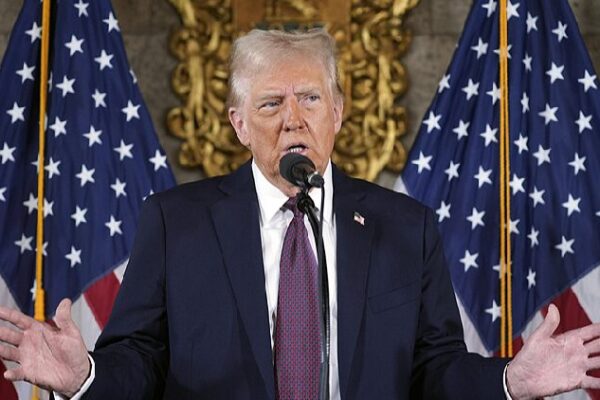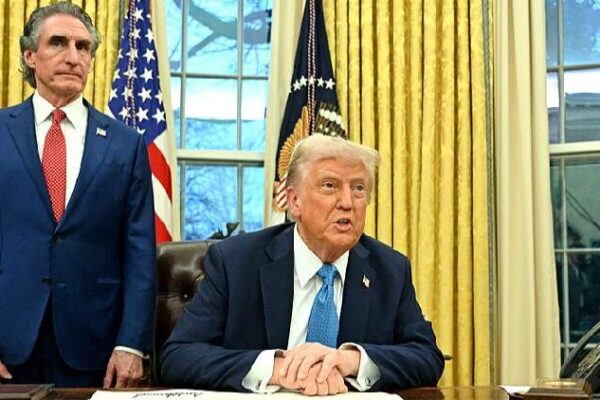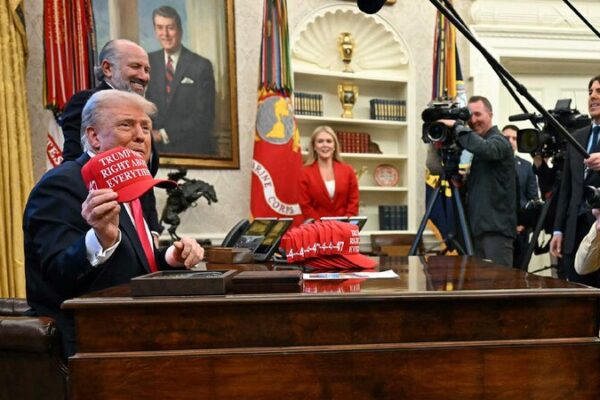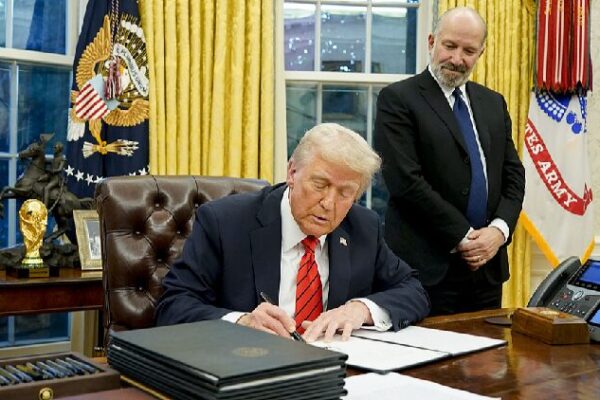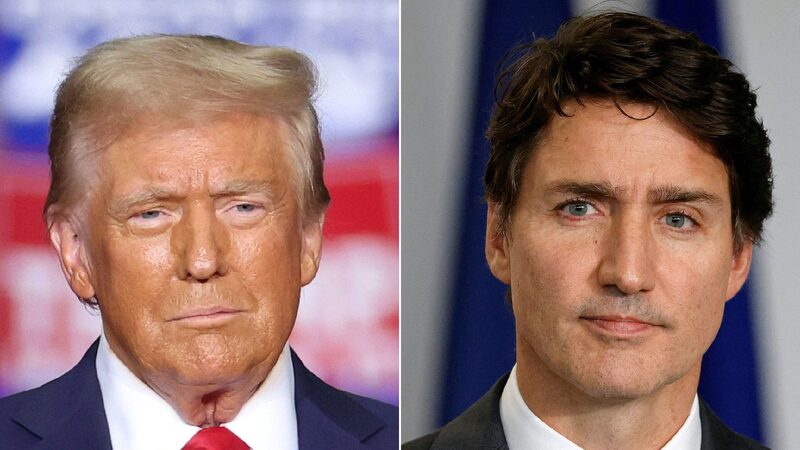President-elect Donald Trump’s recent threats to impose hefty tariffs on imports from Canada, Mexico, and China have ignited widespread concern about potential economic fallout and a surge in protectionism.
During a meeting with Trump, Canadian Prime Minister Justin Trudeau described their conversation as “excellent” but did not provide substantial comments on the proposed 25 percent tax on Canadian goods entering the U.S.
In Mexico, President Claudia Sheinbaum warned of dire economic consequences, stating that such tariffs could lead to inflation and job losses in both countries. “For every tariff, there will be a kind response until we put at risk our shared enterprises,” she said, highlighting the potential harm to U.S. companies with plants in Mexico, including General Motors and Ford.
Economic analysts are also sounding alarms. A report from S&P Global suggested that U.S. and European carmakers could lose up to 17 percent of their combined annual core profits in a worst-case scenario if steep tariffs are imposed.
The impact of tariffs was felt during Trump’s first term, particularly with the 2018-2019 policies that disrupted the global trade system. The U.S. Federal Reserve’s 2019 Beige Book indicated that many businesses were grappling with supply chain disruptions and increased costs due to tariffs, leading to reduced profit margins.
Global manufacturing contracted during that period, as evidenced by the JPMorgan Global Manufacturing PMI remaining below the 50-mark threshold for five consecutive months, signaling declining output across most businesses.
Critics argue that the tariffs essentially act as a tax on Americans. The Tax Foundation reported that the Trump administration imposed nearly $80 billion worth of new taxes by levying tariffs on thousands of products valued at approximately $380 billion in 2018 and 2019.
Current President Joe Biden has criticized the proposed tariff policies, calling them “counterproductive.” “I hope he rethinks it, and I think it’s a counterproductive thing to do,” Biden said.
In response to the tariff threats, a group of Democrats introduced a bill, citing the added cost to American families. Representative Suzan DelBene stated, “Imposing sweeping tariffs on imported goods would raise prices on consumer products by thousands of dollars a year.” She warned that such measures could drive up costs, potentially send the economy into recession, and damage trade relationships with allies, leading to retaliation that would harm American workers, farmers, and businesses.
The Peterson Institute for International Economics estimated that Trump’s larger tariff proposals could cost the typical American household over $2,600 a year. Additionally, a 2023 U.S. International Trade Commission report illustrated the negative effects of previous tariffs, noting significant declines in steel and aluminum imports, modest increases in domestic production, but higher input costs that severely impacted downstream industries.
Global leaders are concerned that escalating trade tensions could disrupt the global supply chain and jeopardize economies worldwide. Liu Pengyu, spokesperson for the Chinese Embassy in Washington, emphasized the mutual benefits of China-U.S. economic and trade cooperation. “No one will win a trade war or a tariff war,” he said.
As the world watches, the potential for a trade war looms, with experts and officials urging caution to avoid a lose-lose scenario that could have far-reaching consequences for the global economy.
Reference(s):
A lose-lose proposition: Trump's tariffs spark global backlash
cgtn.com

